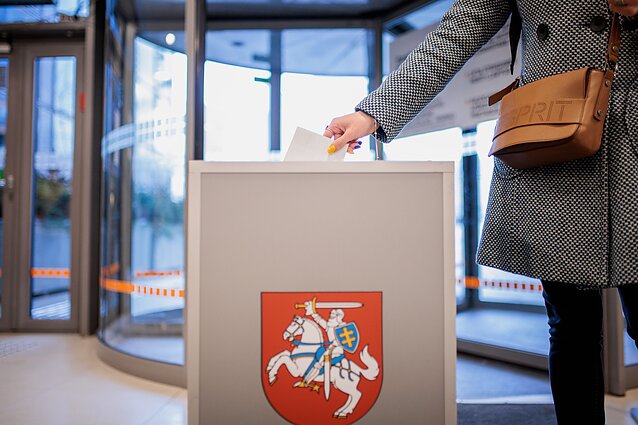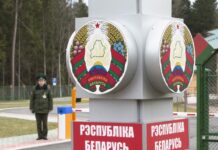
The World Lithuanian Community (PLB) is preparing for the elections coming up in 2024. It will be the year of presidential, parliamentary and European parliament elections, and will also include a referendum on changes to the Constitution regarding dual citizenship. The referendum will be held on May 12, together with the presidential election, and will determine whether Lithuanians having aquired the citizenship of another country can retain their right to a Lithuanian passport. An article in the PLB online magazine Pasauliolietuvis.lt discusses why this issue is so important to Lithuania.
In the referendum held in 2019, a majority of voters agreed that it is not acceptable for Lithuanian citizens who emigrate and need to take on another nation’s citizenship to lose their right to remain Lithuanian citizens by doing so. Nearly one million Lithuanians voted to change Article 12 of the Constitution, but that number was not adequate for an amendment to be passed.
In the article, PLB president Dalia Henke explains that the retention of citizenship is important not only to the emigrants who are directly affected by this law, but for the entire Lithuanian nation and its future, because current demographic trends show a decline in population. An average of 1000 Lithuanians emigrate from the country every year. Lithuania is one of the few European nations that take away emigrants’ citizenship once they become citizens of another country. Henke believes that this weakens the country, because the more citizens it has, the wider its reach. For example, someone having both US and Lithuanian citizenship has potentially more influence on political processes than those who have only a Lithuanian passport. Lithuania is too small a nation to reject its citizens living in the diaspora. For example, Poland has a population of 40 million, with 20 more millions abroad, where its laws allow them to retain their nationality.
Citizenship is the most important connection people have with their country. The current Constitution was formulated in different times, and its authors were cautious and conservative for good reason. But the situation has changed, and the declining demographic should be bolstered. There are approximately 50,000 Lithuanian citizens who have acquired the citizenship of another country.
Naturally, the question of civic duty arises in the discussion of this issue. To which country would persons having dual citizenship be most loyal? In which country would they perform military duty in case of conflict? Opponents of the constitutional change refer to a person’s active participation in their country’s social, economic, political and cultural life as a basic requirement of citizenship, and maintain that sentimental feelings and Lithuanian roots are not sufficient to retain his or her right to be a real citizen, as they would be citizens only on paper.
The newly worded Constitution would confirm that Lithuanian citizenship is acquired by birth and under other conditions as stipulated in the law, which also regulates loss of citizenship. If a sufficient number of voters agree, the statement “with the exception of certain circumstances stipulated in the law, no one can be a citizen of both the Republic of Lithuania and another country at the same time” would be removed from the Constitution. For this amendment to be passed, over half of the country’s legitimate voters (approximately 1.2 million) must agree to it. More information about the referendum is available in Lithuanian at www.referendumas2024.lt






























